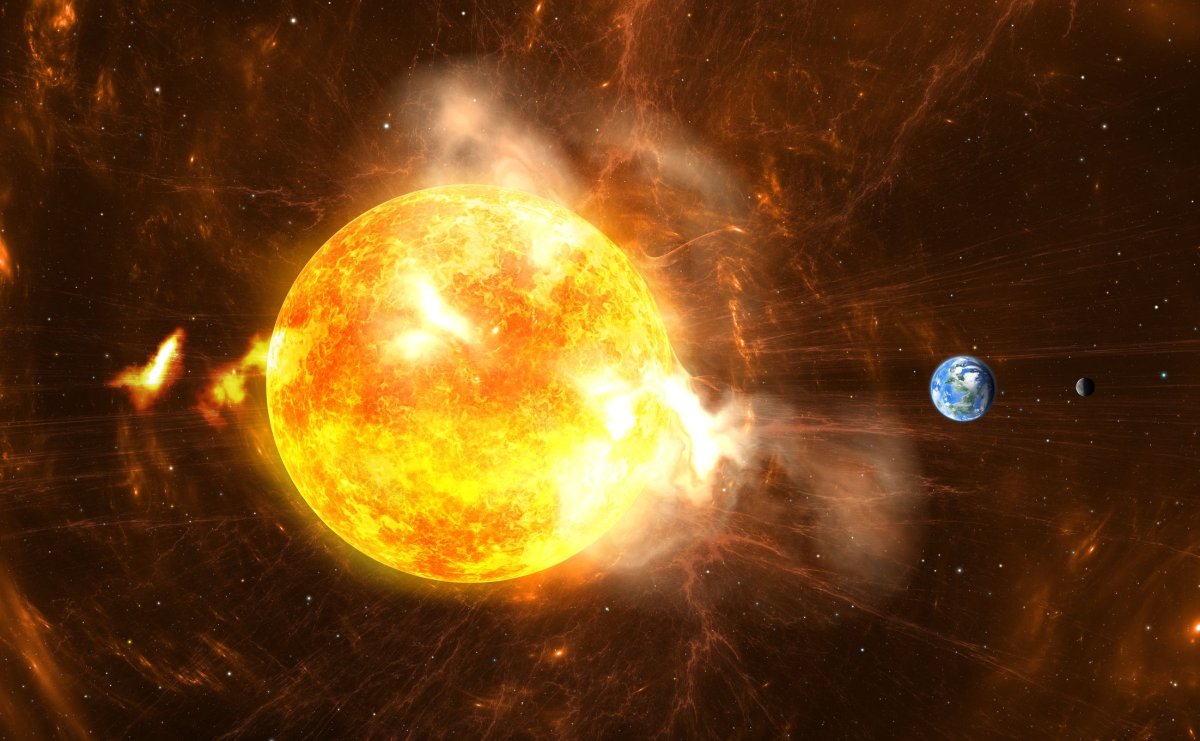The sudden closure of a New Mexico observatory and a nearby post office has set the internet afire with a mystery. On September 6, the National Solar Observatory in Sunspot closed its doors, citing a "security issue." Members of the FBI, the Albuquerque Journal reported, were on the scene.
"The FBI is refusing to tell us what's going on. We've got people up there [at Sunspot] that requested us to stand by while they evacuate," local sheriff Benny House told the Journal. "The FBI were up there. What their purpose was nobody will say."
So are little green men lurking behind the observatory's locked doors? Or perhaps officials are covering up a mega-charged "superflare" from the sun?
Unfortunately for conspiracy theorists, these fantastical options are pretty unlikely. Other observatories would surely have noticed a visit from E.T. Apache Point Observatory is still in operation just over a mile away, the Alamogordo Daily News reported. Nonetheless, internet forums are rife with unusual rumors.
A popular explanation online for the closure is a so-called superflare. Our sun emits energetic particles in the form of solar flares, which sometimes lash our planet. Although we often don't notice them, the eruptions can cause power cuts, stunt radio communications and even damage the ozone layer. But the solar flares we experience are pretty weedy compared with those spewed by other stars.
In 2016, researchers reported in Nature Communications that our own star may well be capable of superflares much stronger than the bursts we are used to. But the scientists cautioned that this was extremely unlikely, in part because the sun's magnetic field is much weaker than that in most of the stars that produce superflares.
The fact they may be possible doesn't add any credence to the conspiracy. If a superflare did take place, its effects would probably be catastrophic—and certainly extreme enough for more than a single observatory to notice.
"We have a large array of detection devices around the world and in space. Any major solar flare would be detected, observed and recorded. The effects of flares are global, not highly localized," Leon Golub, a senior astrophysicist at the Harvard-Smithsonian Center for Astrophysics, told Newsweek.
No abnormal solar activity has been noted by the National Oceanic and Atmospheric Administration's Space Weather Forecast Office, acting lead Rob Steenburgh confirmed. "We're approaching solar minimum, and there has been very little activity and certainly nothing out of the ordinary," he told Newsweek.
As for the possibility of an alien encounter, Golub thinks that's "highly unlikely." "Don't believe everything you read," he added.

New Mexico is home to one of the most enduring conspiracy theories—that in 1947 a UFO crash-landed near the town of Roswell and an alien, dead or alive, was recovered by U.S. officials. Some accounts claim the extraterrestrial was taken to an Air Force facility in Nevada, where scientists performed an autopsy. Alleged lost footage of the examination was released in the mid-1990s but later debunked as a hoax.
Official reports eventually described the crashed object not as an alien spacecraft but as a nuclear test's surveillance balloon. The explanation still fails to satisfy the UFO theory's most ardent supporters, and the Roswell incident remains an extremely popular mystery.
But for the solar observatory, it seems everything might be back to normal soon. The Association of Universities for Research in Astronomy is working with "the proper authorities" on matters surrounding the closure, spokesperson Shari Lifson said. "The local authorities do know and are aware of the situation.... It's a temporary evacuation of the facility. We [will] open it up as soon as possible."
The National Science Foundation did not immediately respond to Newsweek's request for comment.
This article has been updated to include comments from Leon Golub and Rob Steenburgh.
Uncommon Knowledge
Newsweek is committed to challenging conventional wisdom and finding connections in the search for common ground.
Newsweek is committed to challenging conventional wisdom and finding connections in the search for common ground.
About the writer
Katherine Hignett is a reporter based in London. She currently covers current affairs, health and science. Prior to joining Newsweek ... Read more
To read how Newsweek uses AI as a newsroom tool, Click here.








